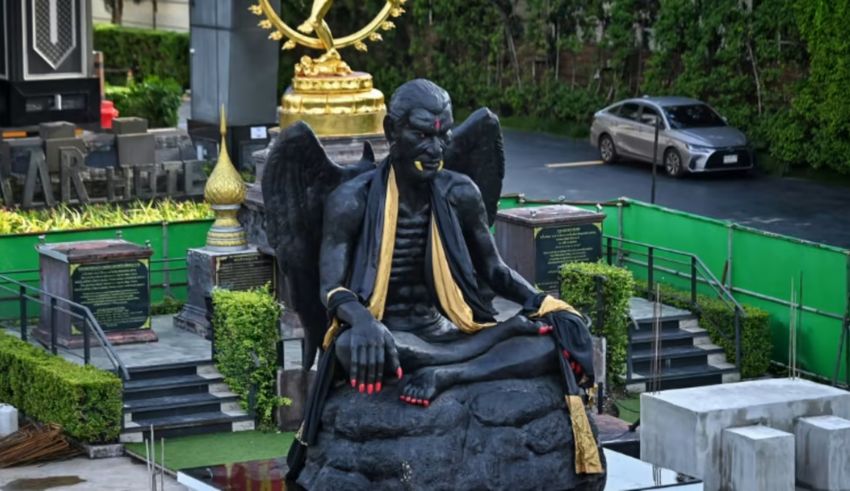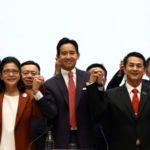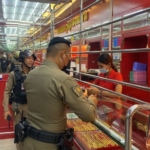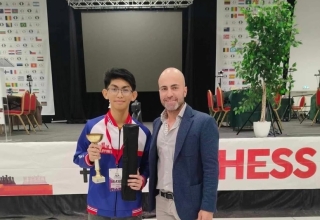
In the busy streets of Bangkok, a towering black statue of an emaciated, winged creature with golden fangs and scarlet talons has taken centre stage, igniting a mix of intrigue, alarm, and controversy among the populace. The mysterious apparition of the five-meter-tall sculpture Kru Kai Kaew, which depicts a bald, gargoyle-like man sitting cross-legged, has led some to wonder about its history, significance, and suitability for Buddhist doctrine.
The mysterious statue that appeared outside the prestigious four-star Bazaar Hotel earlier this month has been the subject of an investigation by Bangkok authorities. Thailand’s capital, which has a strong Buddhist heritage, is embellished with innumerable shrines honouring various ghosts and deities. In the hopes of getting blessings and good fortune, devotees frequently make prayers and offerings. But Kru Kai Kaew has sparked a contentious debate because he is praised as a god of prosperity and denounced for opposing Buddhist precepts.
The statue is criticised for not adhering to Buddhist customs and beliefs. The monument should be taken down, according to the Artists’ Council for the Promotion of Buddhism of Thailand, an organisation that supports genuine Buddhist practices and emphasises the requirement that any object of worship adhere to Buddhist principles. The council worried about the statue’s unclear identity and meaning, confusing the general public.
When a local newspaper, The Nation, published allegations from a conservative group that worshipers were preparing strange rites near the statue, including possible animal sacrifices, the issue grew more intense. The Bazaar Hotel, on the other hand, claimed to be unaffiliated with the installation and contended that a different company had rented the site and erected the statue there.
Some believe that after making offerings to Kru Kai Kaew, they got favourable results in the middle of the conflicting viewpoints. A smoothie vendor named Napapat Kanyabandit, 40, confirmed the god’s beneficial influence on her company and claimed that her success was due to her devotion. But there is still uncertainty since some devotees are still unsure of the full extent of the statue’s power.
Keep Reading
There is still much mystery and conjecture about Kru Kai Kaew’s beginnings. Buddhist expert Sinchai Chaojaroenrat said there are many different theories about the statue’s origins, ranging from being a shamanic figure to a teacher connected to a former Cambodian king. Chadchart Sittipunt, the governor of Bangkok, has mandated an investigation into the origins and meaning of the statue.
Despite the fervor surrounding the statue, its location on private hotel property limits the extent to which authorities can intervene. Officials from Bangkok have suggested that the hotel thinks about hiding the monument to avoid upsetting bystanders. The statue’s alleged powers and connection with Buddhist precepts continue to be questioned, although the Bazaar Hotel has seen a noticeable increase in reservations since it was placed.
The mysterious presence of Kru Kai Kaew continues to intrigue and polarise Bangkok’s populace, igniting debates over custom, belief, and the relationship between spirituality and contemporary urban life.



























